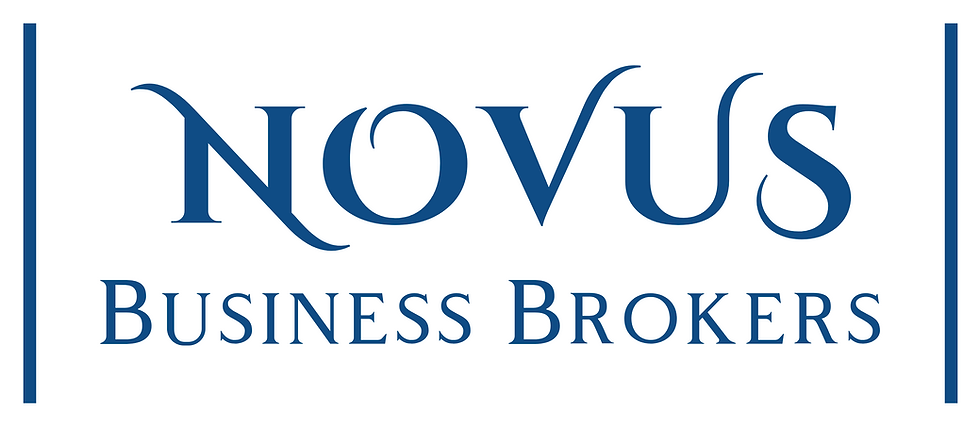The Impact of AI on Business Valuations in 2025.
- NOVUS Business Brokers

- Apr 7, 2025
- 3 min read

As we look towards 2025, artificial intelligence (AI) is set to revolutionize how businesses are valued. With AI-driven tools becoming more advanced, business owners, brokers, and buyers are now able to leverage technology to gain deeper insights into business value — all in a fraction of the time it used to take.
How AI is Changing Business Valuations
In the past, business valuations were based on traditional methods: looking at financial statements, comparing businesses in the same industry, and applying subjective assessments. However, AI technology is changing this dynamic by allowing for a more data-driven approach.
AI can process large datasets faster than any human analyst could, integrating a variety of factors into the valuation. From market trends to social media sentiment and economic indicators, AI can identify patterns that were previously too complex or time-consuming for humans to catch. As a result, the valuation process becomes more accurate and reflects real-time data, which is essential for buyers and sellers.
Predictive Analytics: Looking Into the Future
One of the most powerful uses of AI in business valuations is predictive analytics. AI can analyse historical data and current market trends to predict a business’s future growth potential. For business owners looking to sell, this provides invaluable insights into when to exit and what their business will be worth in the future.
For buyers, AI predictions offer more confidence in whether the business they’re considering purchasing will perform well in the coming years. By using predictive analytics, AI can forecast market conditions, industry changes, and even the potential impact of future technological advancements.
AI vs. Traditional Valuation Methods
While AI brings many advantages, traditional methods still have their place in the valuation process. For example, human expertise is necessary when considering the intangible aspects of a business, such as brand reputation, company culture, or the leadership team. These factors, although important, can’t always be quantified by AI. That’s why a combination of AI technology and human judgment creates the most balanced approach to valuing a business.
Challenges of Using AI in Business Valuations
As with any new technology, there are challenges to adopting AI in business valuations. For example, the quality of the data used to train AI models is critical. If the data isn’t accurate or up-to-date, the AI’s predictions can be off. Moreover, bias in algorithms can sometimes lead to skewed valuations, making transparency and regular updates to the AI models essential.
Businesses also need to consider privacy concerns, especially when using AI to analyse customer data or financial transactions. Striking the right balance between leveraging AI and protecting customer information is a key consideration for both buyers and sellers.
Why AI Will Continue to Shape the Future of Business Valuations
In the next few years, AI’s role in business valuations will only grow. With the ongoing development of machine learning and predictive analytics, AI will become even more accurate and capable of providing deeper insights into business performance.
For business owners thinking about selling, understanding how AI can impact their business valuation is essential. By leveraging AI tools early in the process, they can not only ensure they get the best price for their business but also time the sale for maximum profit.
If you’re considering selling your business or just want to know what it’s worth in today’s market, contact us at Novus Business Brokers for a free, no-obligation valuation. Our team of experts can help guide you through the valuation process and ensure you get the most out of your business sale.
📞 Call us: 0203 883 1397
📧 Email: info@novusbusinessbrokers.com
Click below to request your free valuation now!


